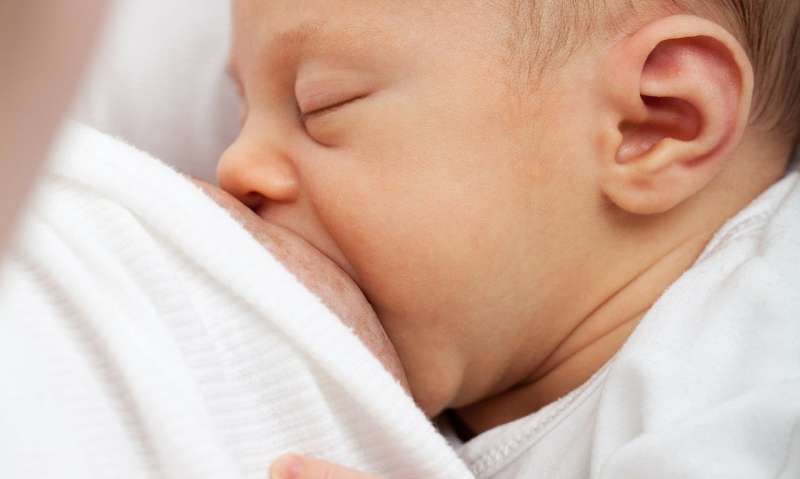Fluoride reduces dental risk from minimal and extended breastfeeding

Cavity-conscious mothers can rest assured their children will not be at increased risk of tooth decay if they can't breastfeed or they want to breastfeed their children for longer—as long as they have access to fluoridated water, research from the University of Adelaide has found.
The new research, led by Dr. Diep Ha of the University of Adelaide in collaboration with dental and nutrition experts from Australia and UK, published in the Journal of Dental Research, looked at cavities in five and six-year-olds, whether they had been exposed to fluoridated water, and if they had been breastfed as infants and for how long.
The study used data collected in one of the largest and most comprehensive population-based studies of child oral health : the National Child Oral Health Study 2012-14.
Results indicated a sweet spot for breastfeeding and good dental health – more than one month and up to 24 months.
Minimal breastfeeding (no breastfeeding or breastfeeding for less than one month) and extended breastfeeding beyond 24 months were both associated with increased dental cavities.
But these effects were lessened if children were exposed to fluoridated water.
Senior author Professor Loc Do, from the University of Adelaide's Australian Research Centre for Population Oral Health, said dental decay is the most prevalent chronic condition in children.
"Breastfeeding is important not only for general health but also for the dental health of young children,'' said Professor Do.
"Minimal breastfeeding can increase risk for having dental decay in children, as can sustained breastfeeding beyond 24 months.
"However, potential risk can be reduced by drinking fluoridated water in formula or ensuring that breastfed children are given fluoridated water to drink after the age of 6 months."
Professor Do said, in fluoridated areas, breastfeeding can be recommended beyond the age of 24 months. In non-fluoridated areas, breastfeeding for up to 24 months is recommended not only for child general health and development but also for child dental health. A dialogue between health organisations should be established to maximise benefits of both breastfeeding and water fluoridation.
"The use of fluoridated tap water should be recommended for young children,'' he said. "The dental profession should support and encourage mothers of infants to breastfeed."
More information: D.H. Ha et al. Fluoridated Water Modifies the Effect of Breastfeeding on Dental Caries, Journal of Dental Research (2019). DOI: 10.1177/0022034519843487


















